Companies
Garden of Gaming in Santa Cruz is Tilled and Ready for Growth
by Sara Isenberg
Publisher, Santa Cruz Tech Beat
Exploring the local gaming wave

Professor Michael Mateus, Director of the Center for Games and Playable Media at UCSC, with students.
With the Princeton Review’s announcement that UC Santa Cruz’s Games and Playable Media graduate program ranked seventh in the nation on its list of “Top 25 Graduate Schools to Study Game Design for 2014” — the only UC school mentioned in the list — and a number of gaming companies and developers calling Santa Cruz home, like Edmund McMillen of Team Meat, and Michael Roush, cofounder of Gaijin Games, the garden of gaming in Santa Cruz seems tilled and ready for growth.
In this week’s Santa Cruz Tech Beat, we explore some of the gaming stars rooted in Santa Cruz and UCSC, and what they think about the future of the local gaming industry.
Graeme Devine
Enter veteran game developer Graeme Devine. With over 30 years of experience in game design and development, Devine is currently putting his skills to work as VP of of Games at Magic Leap, a company that is shrouded in mystery. Although Magic Leap is based out of Florida, Devine works from NextSpace in Downtown Santa Cruz, and believes that our beachside community is an ideal setting for game developers to flourish.
“Santa Cruz is special to me, there is a spirit to the people here, and a genuine wish to make the world better. What better place is there to make the next generation of games and entertainment than right here in Santa Cruz? Let’s change the world!”
Learn more about Graeme Devine. Visit Magic Leap’s website.
Brenda Romero
With a direct hand in the evolution of gaming since 1981, Brenda Romero, or as she was formerly known, Brenda Brathwaite, became a part of the award-winning gaming program at UCSC, first as game designer in residence, and then as program director in 2013. Best known for her work on games like the Wizardry series and Playboy: The Mansion, Romero is no stranger to higher education as she served as a chairperson for interactive design and game development at Savannah College of Art and Design in 2008.
Learn more about Brenda Romero. Watch Romero’s TED Talk.
John Romero
Widely known for his development work on games such as Wolfenstein 3-D, Doom, and Quake, game designer, programmer, and developer, John Romero has partnered with his wife Brenda at the UCSC Center for Games and Playable Media as the program’s creative director. With their combined wealth of experience, the Romero’s may bring the Center of Games and Playable Media at UCSC to the next level.
Visit “Planet Romero” to learn more about John Romero.
Edmund McMillen
Santa Cruz born Edmund McMillen, who was feature on the documentary Indie Game: The Movie, earned his gaming fame through his brainchild, Meat Boy, and the sequel, Super Meat Boy, which was released on XBOX 360 in 2010 and subsequently on Mac and PC formats in 2011. A truly independent game designer, McMillen works from his home office with his wife, Danielle, who creates plush toys based off the characters in Edmund’s games.
Although McMillen recognizes that Santa Cruz does contain a number a game developers, he feels that the community could do more to promote the local gaming industry.
“Over the years, I think it’s grown a lot more with Gaijin Games and mostly the game development courses at UCSC,” says McMillen in an email to Santa Cruz Tech Beat. “Most of the professors are game developers so this has really become a gathering of quite a few well known developers at this point. I have no idea why though. Santa Cruz doesn’t seem to care that much about video games or support much in terms of press these days. I think it’s just the fact that there are quite a few skilled game developers that happen to live here. It could bloom a lot more if there was more in the news about what’s going on here, or more events that focus on indie game development or game developers in general.”
Visit Team Meat’s website.
Michael Roush & Alex Neuse
As a Santa Cruz-based game designer for nearly a decade, Michael Roush, cofounder with Alex Neuse of Gaijin Games, whose headquarters lies in Cruzio Works in Downtown Santa Cruz, has high hopes for the future of the local gaming industry. Gaijin Games has developed the award winning game series, Bit.Trip, and continues to develop new titles for a variety of platforms.
Roush points to the rich history of game development in Santa Cruz with now defunct companies like Osiris and TKO, and to current gaming studios like Team Meat and Chronic Logic.
“I am very fascinated by this history, because very few people know about it in the area. I almost feel as if we will just be known for surf and skate and there is not much room left for this industry,” says Roush in an email to Santa Cruz Tech Beat. “I will say, this is an industry that generates millions of dollars and I personally wish we could bring more of this revenue and creativity to Santa Cruz.”
Visit Gaijin Games’ website.
Josiah Pisciotta
Chronic Logic, owned by Josiah Pisciotta, is a Santa Cruz-based gaming studio best known for its game, Gish, whose featured protagonist is a sentient ball of tar on a mission to save his human
girlfriend. Pisciotta, who developed the Gish game with Edmund McMillen and others, highlights the fact that Santa Cruz is not currently a hub for the gaming industry, but hopes this will change in the future.
“With UCSC having a strong game program and it being a very desirable place to live I think it would be easy find developers here in Santa Cruz,” says Pisciotta.
Learn more about Chronic Logic.
Into the Future
As the Center for Games and Playable Media graduate and undergraduate programs at UCSC grow with the leadership of individuals like Jim Whitehead, who helped create the Computer Game Design program, and director Michael Mateas, known for his AI development work and for the game Façade, (available for free download here) coupled with locally based game developers such as Pisciotta and Devine, the future of the local gaming industry could be on the verge of growth, but only time will tell.
Watch out for further coverage of the gaming program at UCSC in the coming weeks as Santa Cruz Tech Beat explores more of the program’s key players, and the Center for Games and Playable Media’s origins and expansion.
###
Sara Isenberg publishes Santa Cruz Tech Beat for the benefit of the extended business and technology community. When she is not volunteering her time for the tech scene, Sara makes her living by managing software projects, web strategy planning, and providing development team services (including account management, vendor management, strategic partner management, beta project management, referrals to qualified technical team members, and more). Please visit her website: Sara Isenberg Web Consulting & Project Management, or contact Sara by email if you have any project management, account management, or Development Team leadership or service needs.
Tagged Alex Neuse, Brenda Romero, Edmund Mcmillen, game developers, Games and Playable Media, gaming, Graeme Devine, Jim Whitehead, John Romero, Josiah Pisciotta, Magic Leap, magicleap, Michael Mateas, Michael Roush, UCSC, UCSC Center for Games and Playable Media






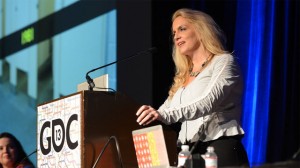

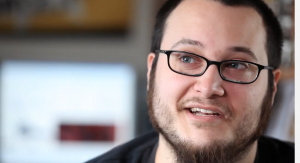

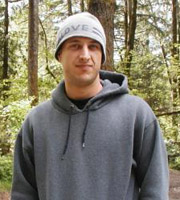
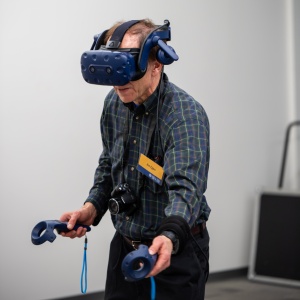

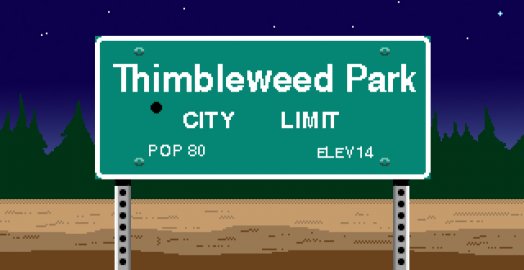
Pingback: How Making Games Helped Her Deal With Evil | Santa Cruz Tech Beat
Pingback: Magic Leap in NY Times: Real-Life Illness in a Virtual World | Santa Cruz Tech Beat